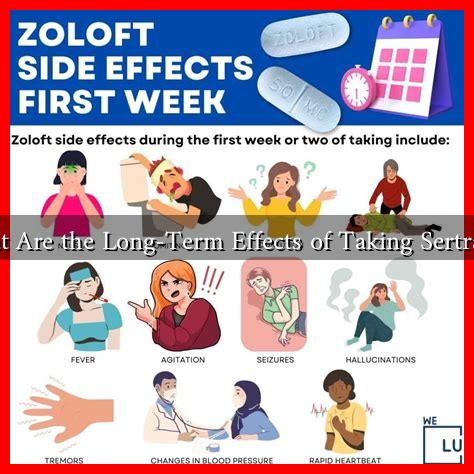-
Table of Contents
What Are the Long-Term Effects of Taking Sertraline?
Sertraline, a selective serotonin reuptake inhibitor (SSRI), is commonly prescribed for various mental health conditions, including depression, anxiety disorders, and obsessive-compulsive disorder (OCD). While many patients experience significant relief from their symptoms, understanding the long-term effects of sertraline is crucial for informed decision-making. This article explores the potential long-term effects of sertraline, supported by research and case studies.
Understanding Sertraline
Sertraline works by increasing serotonin levels in the brain, which can help improve mood and emotional stability. It is often favored for its relatively mild side effect profile compared to other antidepressants. However, like all medications, it is essential to consider both the benefits and potential long-term consequences of its use.
Common Long-Term Effects
Long-term use of sertraline can lead to various effects, both positive and negative. Here are some of the most commonly reported long-term effects:
- Emotional Stability: Many patients report sustained improvements in mood and anxiety levels, leading to a better quality of life.
- Weight Changes: Some individuals may experience weight gain or loss, which can be attributed to changes in appetite or metabolism.
- Sexual Dysfunction: Long-term use can lead to sexual side effects, including decreased libido, delayed ejaculation, or anorgasmia.
- Withdrawal Symptoms: Discontinuing sertraline can lead to withdrawal symptoms, such as dizziness, irritability, and flu-like symptoms.
- Emotional Blunting: Some users report feeling emotionally numb or less able to experience joy or sadness.
Case Studies and Research Findings
Research on the long-term effects of sertraline has produced mixed results. A study published in the Journal of Clinical Psychiatry found that patients who remained on sertraline for extended periods experienced significant reductions in depressive symptoms. However, the study also noted that some participants reported persistent sexual dysfunction even after discontinuation.
Another study in the American Journal of Psychiatry highlighted the risk of emotional blunting in long-term users. Participants described a sense of detachment from their emotions, which could impact personal relationships and overall life satisfaction.
Potential Risks of Long-Term Use
While sertraline can be beneficial, there are potential risks associated with long-term use that should not be overlooked:
- Dependency: Some individuals may develop a psychological dependency on the medication, feeling unable to cope without it.
- Increased Tolerance: Over time, some patients may find that the medication becomes less effective, leading to dosage increases.
- Serotonin Syndrome: Although rare, prolonged use can increase the risk of serotonin syndrome, a potentially life-threatening condition caused by excessive serotonin levels.
Managing Long-Term Use
For those considering or currently taking sertraline, it is essential to manage its use carefully. Here are some strategies:
- Regular Consultations: Schedule regular check-ups with a healthcare provider to monitor mental health and medication effects.
- Open Communication: Discuss any side effects or concerns with a doctor to adjust treatment as necessary.
- Consider Therapy: Combining medication with psychotherapy can enhance treatment outcomes and reduce reliance on medication alone.
Conclusion
Sertraline can be an effective treatment for various mental health conditions, offering significant benefits for many individuals. However, it is crucial to be aware of the potential long-term effects, including emotional changes, weight fluctuations, and sexual dysfunction. Regular communication with healthcare providers and a comprehensive treatment plan can help mitigate risks and enhance the overall effectiveness of sertraline. As with any medication, informed decision-making is key to achieving the best possible outcomes.


